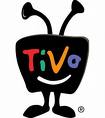TiVo judgment is fascinating, yet frightening


As a general rule, the words “a” or “an” in a patent claim carry the meaning of “one or more.” That is particularly true when those words are used in combination with the open-ended antecedent “comprising.” However, the question whether “a” or “an” is treated as singular or plural depends heavily on the context of its use. ... Unlike the case in Baldwin Graphic, where the claims and the written description could be read to encompass either a singular or plural interpretation of “a” or “an,” the claims and written description in this case make clear that the singular meaning applies.
TiVo's patent (6,233,389) says that the "Output Section assembles said video and audio components into an MPEG stream" (emphasis mine). TiVo, bless them, tried to claim that "an" meant "one or more" in this context. EchoStar said "an" meant "one", and their DVR assembled the video and audio into two separate MPEG streams so the patent didn't cover them, thank you very much. The court sided with EchoStar on this particular point, but not on several others.
Half of the patent (which was filed 10 years ago in July) concerned the hardware part of the TiVo DVR, and half concerned the software part. The court reversed the judgment of infringement of the hardware claims, but affirmed the infringement of the software claims. That means EchoStar loses the case and has to pay $73 million (or more) in damages to TiVo. In addition, EchoStar will likely either have to quit selling DVRs or pay TiVo a royalty on each box in the future.
It didn't help EchoStar that their arguments were pretty weak. For example, the patent uses the word "object" in several places, e.g.:
[2] providing a source object, wherein said source object extracts video and audio data from said physical data source; [3] providing a transform object, wherein said transform object stores and retrieves data streams onto a storage device; ...
EchoStar argued that "object" means an item written in an object-oriented language like C++. We didn't use an object-oriented language, they said, therefore we have no objects, and so we couldn't be violating the patent. (I'm not kidding--I could not make this stuff up, folks.) TiVo, needless to say, didn't agree:
TiVo’s expert offered a broader definition for the term “object,” referring to it as “a software term that describes a collection of data or operations.” He explained that “objects” can contain both data and operations, but that they may contain only data or only operations. He added that the term “object” does not imply the use of an object-oriented computer language, and that objects and object-oriented techniques can be used in many programming languages. As support for its proposed definition, TiVo cited a technical dictionary, which gave “a collection of data and operations” as one of the definitions of the term “object.” IEEE 100: The Authoritative Dictionary of IEEE Standard Terms 752 (7th ed. 2000).
The court sided with TiVo, saying that "persons of ordinary skill in the art would understand that term according to its ordinary meaning, which accorded with TiVo’s definition." Chalk one up for common sense.
I was surprised by all the technical detail in the ruling. For example it talks about Ioctl commands, temporary storage buffers, Broadcom chips, pushing vs. pulling, and so forth. I guess courts aren't as technically clueless as I once thought.
Mostly, though, I'm stunned and a bit worried at how every little word in a patent filing can take on such an important role when there are millions of dollars at stake. I'm sure that great care was taken in writing this patent, but that didn't help. Someday, even though I object to the idea of software patents personally, I may find myself in a position where I need to file one. The thought of a room full of lawyers spending countless hours pouring over the minutiae of each word and punctuation mark has me dreading that day even more.